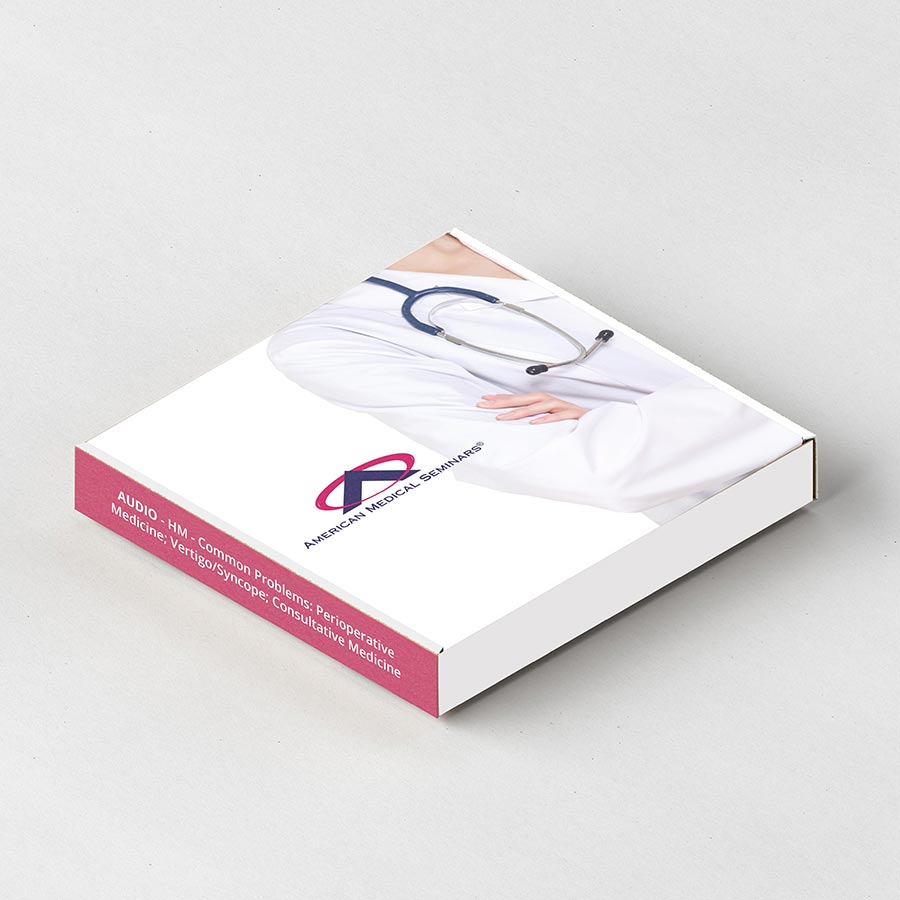Product Description
Expiration Date: July 1, 2019
Title: Hospital Medicine – Common Problems: Perioperative Medicine; Vertigo/Syncope; Consultative Medicine
Faculty: Vandana Y. Bhide, M.D., F.A.C.P., F.A.A.P., A.B.I.H.M. and Kendal Williams, M.D., M.P.H.
Original Release Date: July 1, 2016 Review Date: July 1, 2017 Expiration Date: July 1, 2019
TOPIC 1: Update in Perioperative Medicine.
Upon completion of this session, the participant should be able to: COMP
- Appraise pre-operative cardiac risk stratification and management strategies.
- Determine the role of non-invasive stress testing, echocardiography, coronary angiography and the use of biomarkers to assess peri-operative cardiac risk.
- Relate the indications for beta blockers, statins and aspirin in the peri-operative period.
- Evaluate the bleeding risks of commonly prescribed medications and OTC supplements taken pre-operatively.
TOPIC 2: The Evaluation and Management of Syncope and Vertigo.
Upon completion of this session, the participant should be able to: COMP
- Appropriately evaluate patients with syncope or vertigo.
- Formulate a diagnostic evaluation strategy of syncope or vertigo that is based on best practices.
- Debate the value of the various diagnostic approaches to the workup of syncope.
- Prescribe an effective therapeutic strategy for the management of both syncope and vertigo.
TOPIC 3: Consultative Medicine: Transfusion Guidelines, Delirium, Beers Criteria, Anticoagulation Guidelines.
Upon completion of this session, the participant should be able to: EBM, GL, COMP
- Interpret changes in the updated 2012 American College of Chest Physicians Evidence-Based Guidelines for Antithrombotic Therapy.
- Assess restrictive red blood cell transfusion strategy as recommended by American Association of Blood Banks (AABB) guidelines.
- Evaluate clinical factors that make patients more prone to hospital and postoperative delirium.
- Employ evidence-based strategies to treat delirium in hospitalized patients.
- The receipt for any incentive-associated purchase will designate the value of the gift card separately from the cost of the learning activity.
- This incentive may have implications on your tax reporting obligations. Any reimbursed amount must be declared as personal income for tax purposes.


